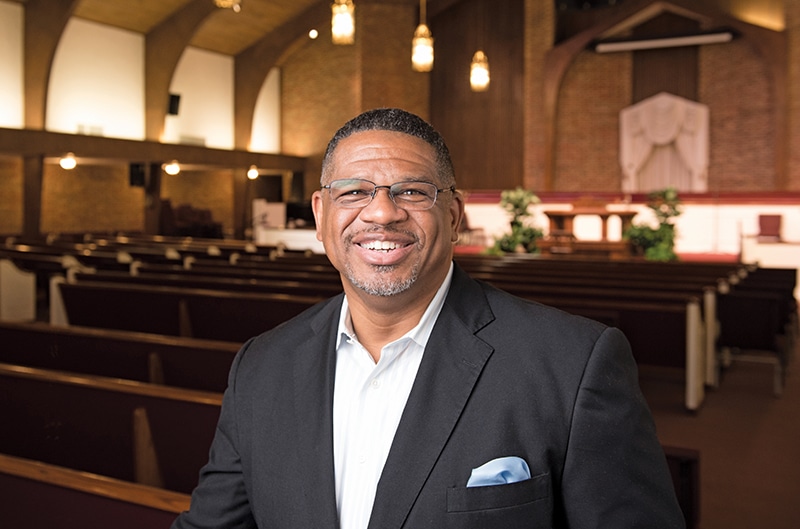The Rev. Oscar Epps will never forget Easter Sunday 2018. He was preaching at Community Missionary Baptist Church in DeSoto when he suddenly couldn’t remember the next part of his sermon and started feeling “very weird.” Despite the warnings signs, the pastor traveled 15 minutes to preach at his second church in Cedar Hill.
“I shared with the congregation, ‘Guys, I’m having a strange feeling that I’ve never had before. Please come to the altar to pray for me,’” Oscar says. “When I got to the podium, my daughter says my speech became slurred.”
Destany Epps called the family’s physician, Michael Marshall, MD, on the medical staff at Methodist Charlton Medical Center, who advised that Oscar go to the hospital immediately. Oscar quickly got in an ambulance, accompanied by his wife, Belenthia. En route to Methodist Charlton, Oscar learned his blood pressure was a soaring 212/128.
Perfect timing to stop a stroke from starting
“I was so confused about what had happened to me,” Oscar says. “I kept asking if I’d had a stroke.”
While his symptoms were similar to those of a stroke, Oscar actually had a condition called hypertensive encephalopathy, an abrupt increase in blood pressure that can lead to a stroke if untreated. Symptoms of hypertensive encephalopathy include muscle weakness, poor decision-making or concentration, involuntary twitching, trembling, difficulty speaking or swallowing, and seizures.
Madhu Kumar Patalay, MD, internal medicine physician on the medical staff at Methodist Charlton, says Oscar was “brought in at just the right time, because without treatment, there’s always a risk of hemorrhage and stroke.”
One of the first physicians to see Oscar that day was Faraz S. Hafeez, DO, also an internal medicine physician and a hospitalist on the Methodist Charlton medical staff.
“We were in constant contact with the neurologists, and we determined that the CT scan of his brain looked good,” he says. “We also checked for any tumors or masses and took an echocardiogram to ensure he didn’t have any blood clots.”
After running multiple tests and getting his blood pressure under control, Oscar’s medical team increased the dosages of two blood pressure and cholesterol medications he’d been taking and added another drug to his regimen. Oscar says he started feeling normal after 48 hours in the hospital.
Road to recovery — and back into the pulpit
Oscar says he has recovered “100 percent.” He still takes medications and regularly sees a cardiac specialist, G. Mark Jenkins, MD, on the medical staff at Methodist Dallas Medical Center. He’s also taking steps to reduce the amount of stress in his life and lose weight.
Indeed, lowering stress levels, along with eating a healthy diet rich in fiber, fruits, and leafy green vegetables and maintaining a healthy weight, can help reduce the risk for high blood pressure and stroke.
Now that Oscar knows how to prevent future complications, he’s optimistic and in charge of his health.
“I had a beautiful experience at Methodist Charlton,” he says. “My physicians and the neurologists there took excellent care of me.”
STROKE CARE YOU CAN TRUST
For quality stroke care, you can count on Methodist Charlton, certified as a Primary Stroke Center by The Joint Commission.

